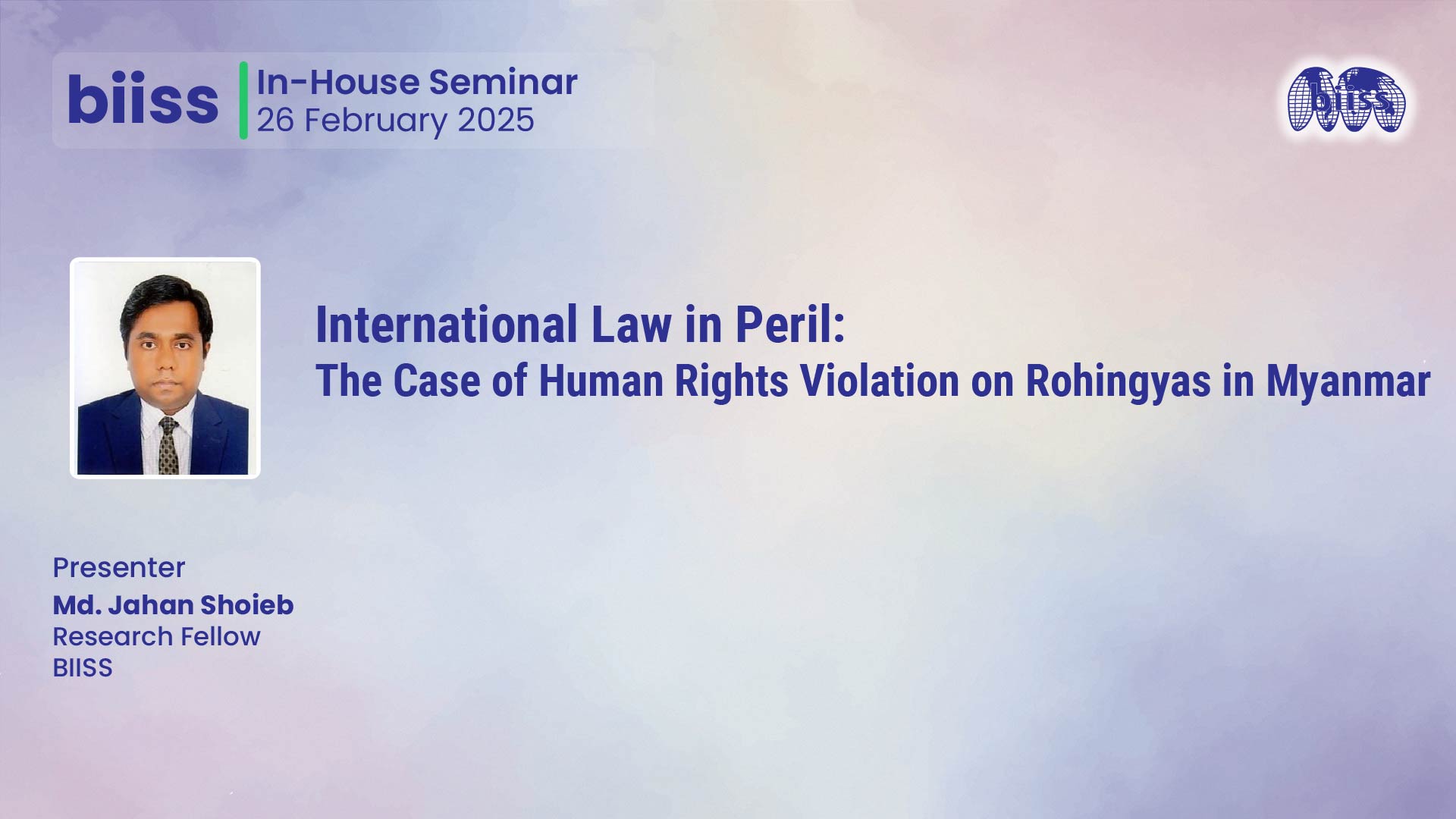International Law in Peril: The Case of Human Rights Violation on Rohingyas in Myanmar

This in-house seminar critically assesses the state of international law and its mechanisms in the face of persistent and grave human rights violations against the Rohingya population in Myanmar. The Rohingya crisis serves as a stark case study for the efficacy and limitations of the global legal and normative framework designed to prevent atrocities and protect vulnerable populations. The discussion will focus on several key pillars of international law, including international human rights law, international humanitarian law, and international criminal law. Panelists will analyze the legal arguments and evidence presented in ongoing cases at the International Court of Justice (ICJ) and the International Criminal Court (ICC), evaluating their potential to deliver justice and accountability.
A significant portion of the seminar will be dedicated to exploring the concept of the Responsibility to Protect (R2P) and the reasons for its apparent failure in the Myanmar context. The discussion will examine the role of the UN Security Council, the impact of the veto power, and the challenges of political will in translating legal norms into protective action. Furthermore, the seminar will explore the legal responsibilities of states, including Bangladesh, in providing refuge and protection, and the principle of non-refoulement. The objective is to move beyond a mere description of violations to a strategic analysis of the legal and diplomatic tools available to Bangladesh and the international community. The dialogue aims to identify gaps in the international legal architecture and propose innovative strategies for leveraging existing laws to ensure accountability, facilitate the safe and dignified repatriation of the Rohingya, and ultimately strengthen the global human rights protection regime.